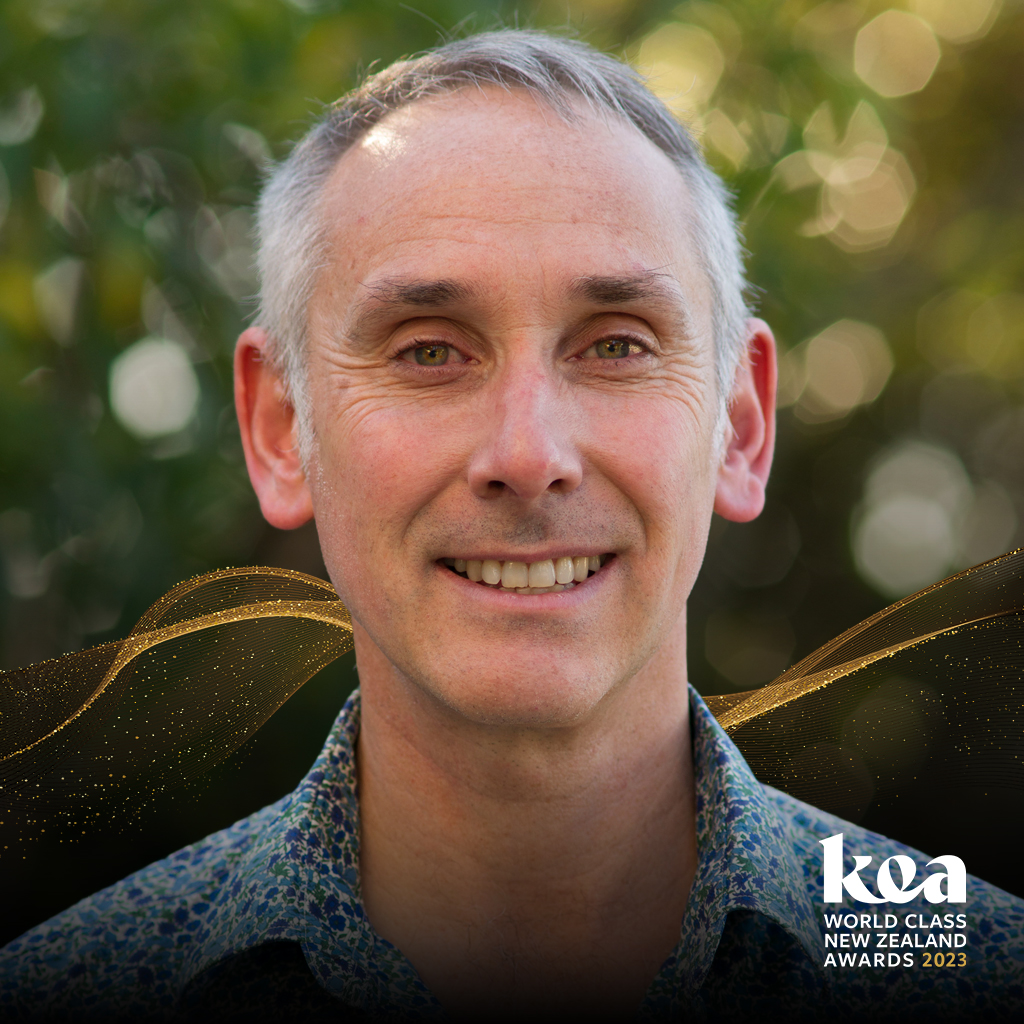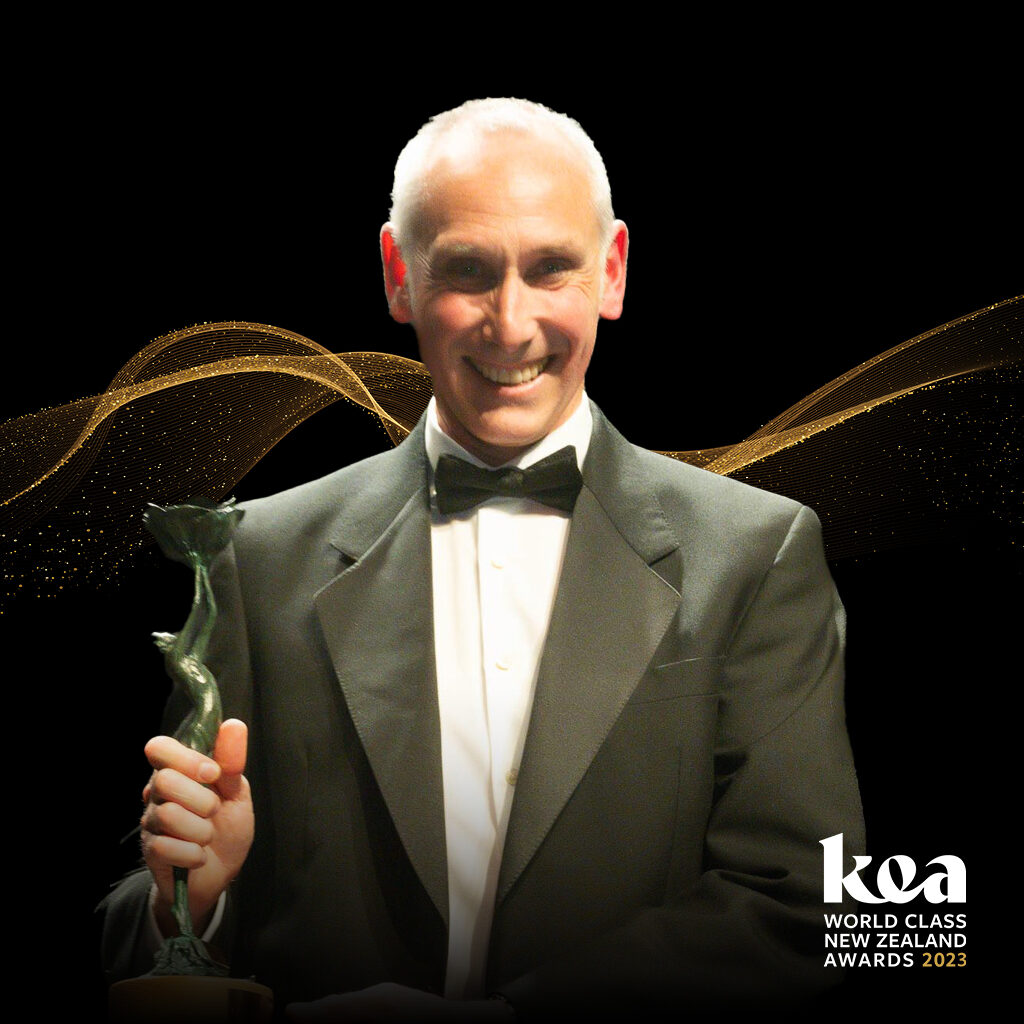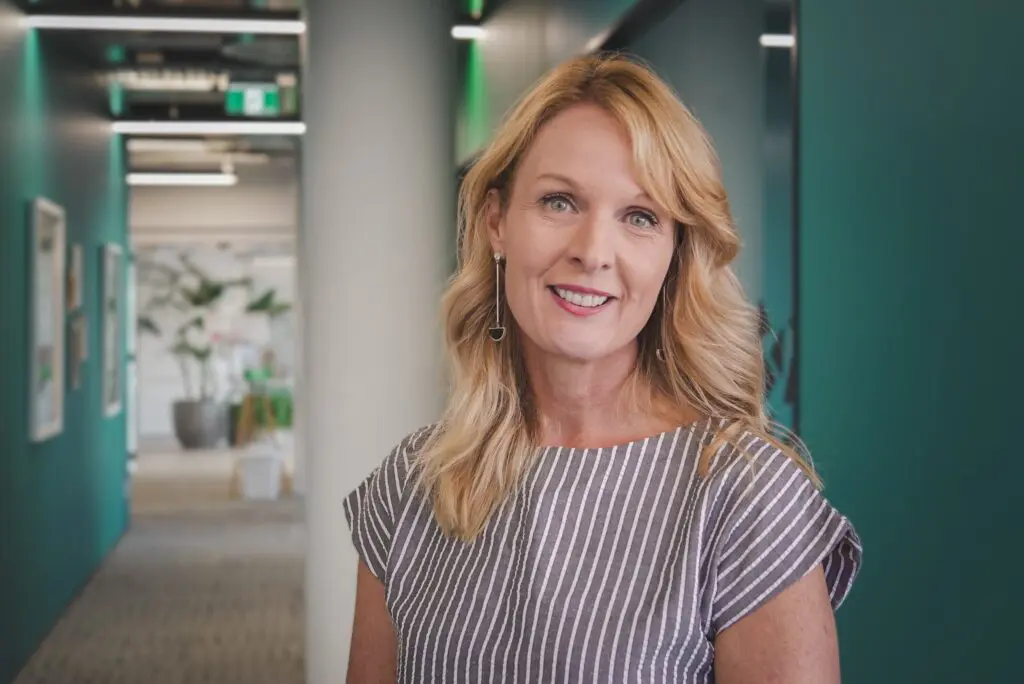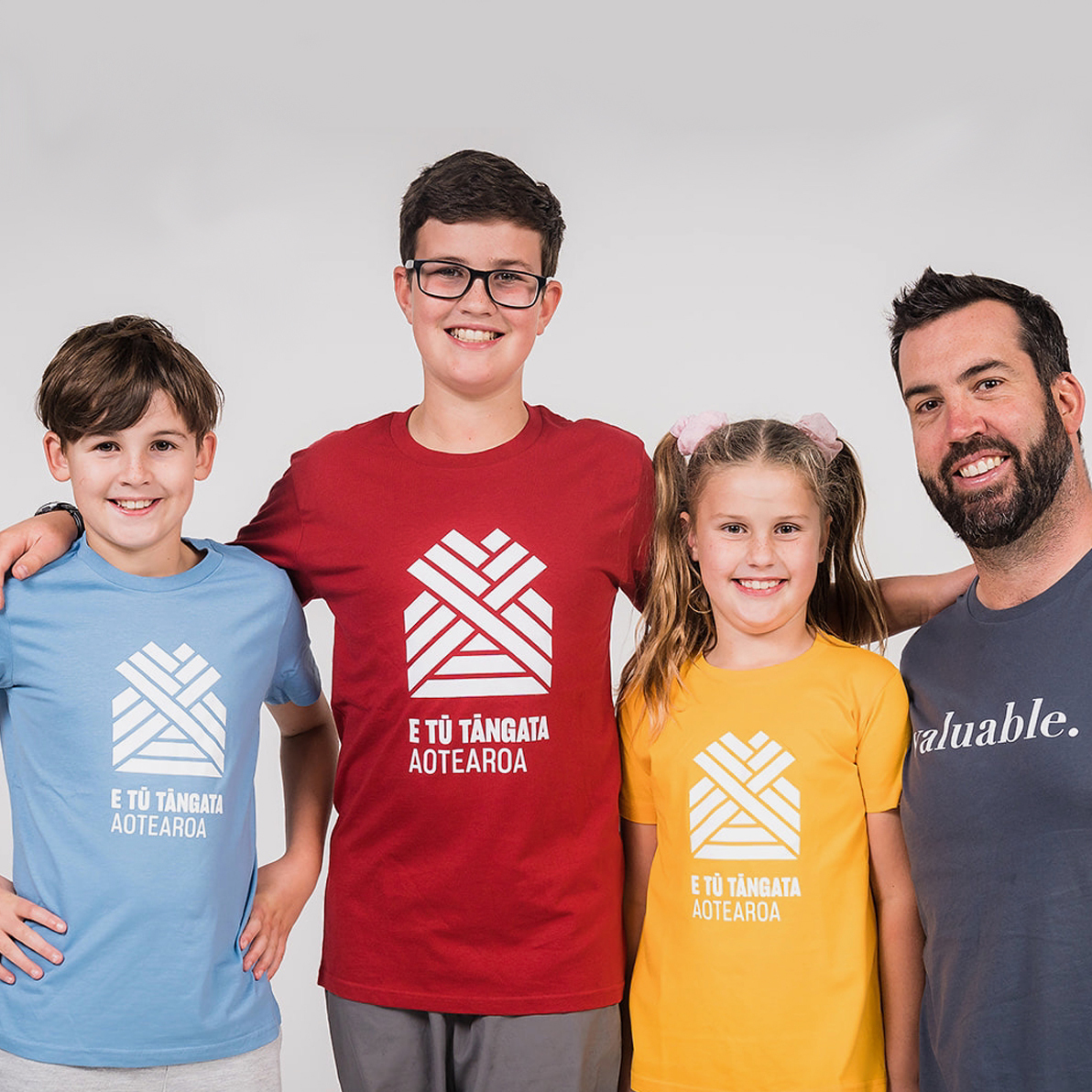The togetherness needs to be international

2023 Kea World Class New Zealand Award winner Cristin Print
Cristian (Cris) Print has always loved complexity, and there is nothing more complex than the human body. After attending medical school and working for a period as a house surgeon he realised it was research that really interested him and decided to do a PhD in molecular immunology at University of Auckland. That research saw him become one of the early forebears in gene discovery and eventually the sequencing of whole genomes. His work has gained international recognition, respect and accolades in the field of genomics and led to big changes in how we treat genetic diseases like cancer. Most importantly he views science as a team sport and has been involved in multiple projects, boards and groups which have seen him give up his time voluntarily to help advance his field. Cris is passionate about data sovereignty and has worked extensively with iwi to ensure indigenous people are not left behind in the area of genomics but also that their data is treated with respect and is properly protected.
As a young boy Cris says he always remembers being interested in the way things worked, he would pull apart lawnmowers just to put them back together again. In high school a teacher introduced him to biology which led to his love of science and medicine. After completing a medical degree he realised his real passion lay in research and embarked on a PHD in molecular immunology at University of Auckland. Cris says he was lucky enough to be one of the last generations of people who could discover a gene.
“We named the gene CG1 – after myself and fellow scientist Geoff Christensen who was working with me at the time. Finding a gene that you can put a name on and then progressively working out what it does is an amazing thing. That was in the early 90s. In the early 2000s, I was very lucky to be in the first generation of people to analyse whole genomes in this field called genomics.”
Cris went overseas to continue his work, doing research at both Melbourne University in Australia and Cambridge University in the UK, it was during his time at Cambridge that he discovered his love of bioinformatics, the science of analysing massive amounts of data and applying that data to human disease and understanding how that may lead to therapies.
After co-founding a bioinformatics company which became one of the first to be listed on the Tokyo stock exchange, he returned to New Zealand and Auckland University to continue his work. He has also worked with New Zealand’s Crown Research Institute ESR – where he took on the role of acting chair.
ESR CEO Peter Lennox says Cris is a real team player who focuses on working to create connections which allow people in different fields to share their knowledge with each other and also encourages companies and people to think about the future.
“At ESR, He helped us think about artificial intelligence way before Chat, GPT and others. He made us think ‘what does that mean for us, what does it mean for the communities we work with?’ That then spilled into DNA sovereignty and the work that he does there especially with our iwi. He is passionate about being careful to protect rights but also to ensure groups of people are not left behind, and that was something that he was thinking about way before anyone else.”

Peter says Cris’s work on his bioinformatics company means he is not just focused on the science but also has a strong understanding of the commercial side and what it means for companies like ESR.
“We’ve got a number of commercial products that have been very successful throughout the world. And a lot of that’s been because of Cris and our board supporting what we’re doing. He is well recognised internationally, but in New Zealand there is a quiet confidence about what he does and he has real insight that provides confidence for companies like ESR to have the foresight to prosper.”
Cris says he views science as the ultimate team sport and all his achievements have been because of the amazing people he has alongside him.
“I think we’re very lucky in New Zealand, although we’re critically limited in resources for research and resources for clinical care, we’ve got this real number eight fencing wire mentality, we’re also very good partners and collaborators. We’ve got this deliberate focus on working with people internationally that puts us in good stead. But also just in New Zealand being able to firstly being able to work at the industry level with Māori and Pacific people, but secondly at the level of working in a group where you’re interacting between the clinic and the basic lab, interacting between mathematicians and data scientists and of course working with these amazing students at the university who come up with ideas that are way smarter than anything I could ever have thought of, it’s just incredible.”
“Nothing happens without togetherness in science. In New Zealand, The togetherness needs to be international. We’re at the end of the world. And all of our success is predicated on maintaining these close international connections.”
Cris’ Auckland University colleague, John Fraser says Cris is a wonderful friend, and his ability to collaborate and really listen to people is what makes him stand out as a leader.
“His personal attributes are quite rare in combination. He is somebody who is very intelligent, highly collaborative and always looks at the positive side of things. He is very good at engaging other people with his ideas without being too overbearing and, above all, he doesn’t care who gets the credit. He’s been able to bring people along on some pretty complex ideas, for example the national approach to how we handle genomics.”
Much of Cris’ work is thanks to advances in technology and he says now is a really exciting time to be part of the field with so many things happening so quickly. However he warns that while it’s exciting to move forward he is also committed to making sure that scientists listen to the community they are working with and for.
“The science we do today is driving the clinical therapies of tomorrow, and if some groups are excluded from that science for reasons such as poor data sovereignty this will mean that our science and our future medicine becomes increasingly inequitable. I think New Zealand definitely stands out on the world stage in terms of working with indigenous people in the genomics and the gene sequencing area. We are learning from Māori and from Pacific people, how to govern data, how to keep data safe, how to work productively in large teams. I I think Mātauranga Māori (Māori knowledge) is one of the strongest gifts when it comes to a new angle to look at bioinformatics and how you analyse DNA sequences. We’re very lucky in New Zealand to have that and it needs to be driven by strong leadership from Māori and Pacific people, and I hope that’s what we’ll be seeing over the next few years.
When he’s not looking for the next genetic breakthrough, Cris enjoys spending time with his wife Adele and their three boys. He is also a keen mountain biker, who originally took up the sport as a way to spend time with his sons but now finds himself pestering them to join him on the trails. He says he finds the next generation of young people really inspiring and can’t wait to see where they take genomics in the future.
“I love working with PhD students. I especially love working with young, enthusiastic medical students. Every now and again When I come off my mountain bike and end up in A&E, or one of my children goes to A&E, I see one of those medical students and it’s so cool to watch them in their environment. I guess in all of my work, I feel I’m always learning and one of the real joys is watching people who are working with me really succeeding and really progressing and becoming better than I am, it makes me really excited for what the future holds.”

 MENU
MENU









